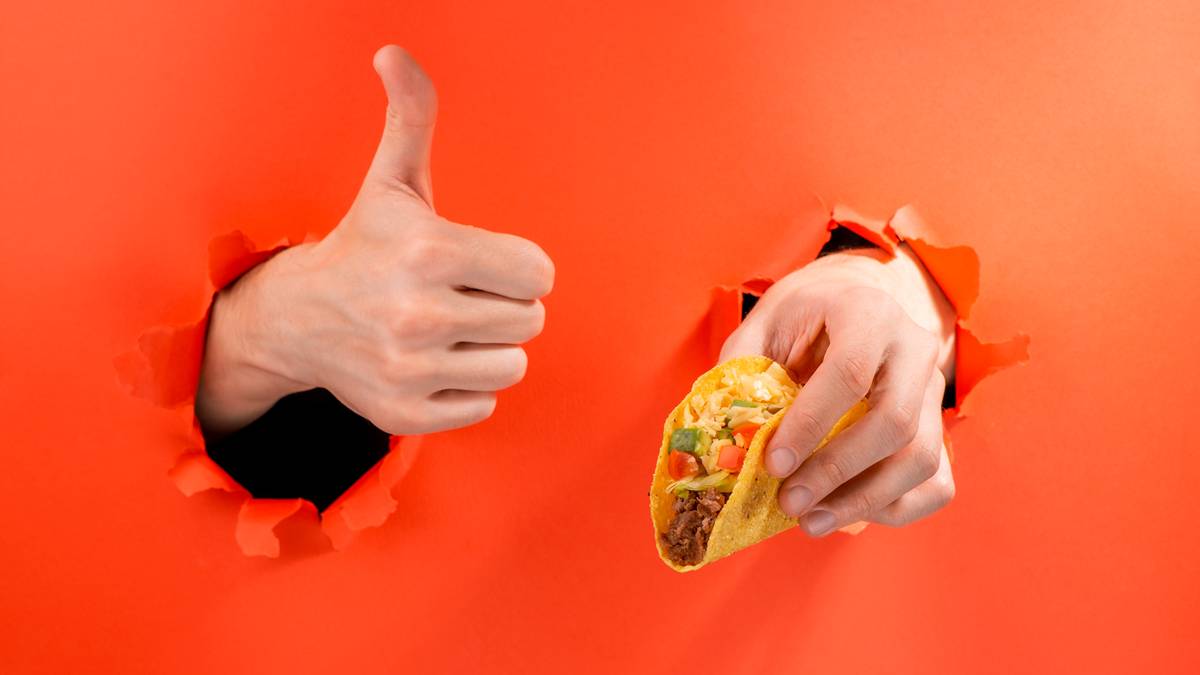Health Check: POTUS puts drug tariffs back on agenda… another case of TACO?

We're not tarrified: thumbs up to another expected Trump backflip. Pic via Getty
- POTUS threatens a foreign drug tariff, but gives Big Pharma more time to shift production onshore
- ASX drug makers say they won’t be overly affected by any Trump tariff whack
- Island Pharma acquires a secondary virus program
Donald Trump has reiterated his threat to impose a tariff on drugs manufactured offshore – but he has promised a time reprieve as well.
After April 2 Liberation Day – Trump’s general tariff declaration that quickly became obfuscated – the Orange One foreshadowed a heavy tax on foreign pharmaceuticals.
The White House ordered a Commerce Department investigation, to be released by the end of the month. The administration frames offshore drug making as a national security threat.
Overnight, Trump said drugs would be “tariffed” by up to 200% – thus declaring war on both Big Pharma and the English language.
“We’re going to give people about a year, a year and a half to come in and, after that, they’re going to be tariffed,” Trump said.
“If they … bring the pharmaceuticals into the country … they’re going to be tariffed at a very, very high rate, like 200%.
He adds: “we’ll give them a certain period of time to get their act together.”
Copper load of these tariffs
Trump also has flagged tariffs on various other items, including copper.
Batting for Team Australia, federal treasurer Jim Chalmers has dubbed the developments as “very concerning”, but notes that less than 1% of our copper exports are shipped to the US.
“Our pharmaceuticals industry is much more exposed to the US market, and that’s why we’re urgently seeking some more detail on what’s been announced.”
According to the United Nations Comtrade database, Australia exported US$1.35 billion pharmaceuticals to the US in 2024, with blood products, vaccines and serums accounting for US$1.23 billion.
In the meantime, the global life sciences sector wasn’t exactly panicking overnight – a sure sign that investors believe Trump will do another TACO (Trump Always Chickens Out).
The global S&P pharmaceutical index and the Nasdaq biotech index both rose around 0.85%.
Mind you, Trump went the full jalapeno on Iran, so don’t assume anything.
Relax, say local drug makers
For ASX drug plays, the likely impact is muted because so few of them currently sell in the US (or anywhere else for that matter).
CSL (ASX:CSL) is the most likely one to be affected, given its expansive presence in plasma-derived products and vaccines.
But given most of former derives from American blood, their true state of origin is unclear.
Botanix Pharmaceuticals (ASX:BOT) yesterday said tariffs were unlikely to have a material financial impact. The company is rolling out its anti-sweating drug Sofdra in the US market.
Mesoblast (ASX:MSB) says its stem cell products are derived from US donors and thus classified as local.
The company is commercialising its recently FDA-approved treatment for childhood graft-versus-host disease, Ryoncil.
It also hopes to win approval for its heart disease therapy Revascor.
Clinuvel Pharmaceuticals (ASX:CUV) derives predominantly US revenues from its approved sun intolerance drug, Scenesse.
The drug is contract manufactured in the US with a secondary European site, so that doesn’t sound too problematic.
Neuren Pharmaceuticals (ASX:NEU) has its Rett syndrome drug Daybue. But the therapy is sold via Neuren’s US partner Acadia, so there’s no direct exposure.
Island expands its ‘nasty disease’ repertoire
The developer of a dengue fever treatment, Island Pharmaceuticals (ASX:ILA) has exercised an option to acquire a secondary program for dreaded diseases including the deadly Marburg virus.
Last September Island took a $US50,000 option to acquire the molecule, galidesivir, from the Nasdaq-listed Biocryst Pharma.
Island had 12 months to decide, but enthused by its due diligence the company has fast tracked the purchase.
Island pays an upfront US$550,000 upfront (including the option fee) and US$1 million on FDA (or similar) approval. Royalties are also payable.
If a drug is approved under the FDA’s Animal Rule, Island would pay US$1.5 million. This conduit is for when a human trial would be unethical – such as injecting subjects with a deadly virus – and animal trials would suffice.
With the benefit of US$70 million of R&D grants, Biocryst has carried out two safety studies affirming that galidesivir is safe.
Island hopes to complete a Marburg animal study within the next 12 months.
“It’s a phenomenal program and we can’t wait to get started,” says Island chief Dr David Foster.
Formerly known as Marburg hemorrhagic fever, Marburg virus disease is closely related to the Ebola virus.
It’s spread by bat and then from human to human via bodily fluids, with a high fatality rate. Unlike with Covid, no-one would ever say ‘it’s just like the flu’.
Prescient shares are ‘worth up to four times more’
Research house Pitt Street Partners dubs Prescient Therapeutics (ASX:PTX) as underpriced as the cancer drug developer kicks off a phase II trial for T-cell lymphoma, one of the deadliest of cancers.
Prescient is trialling its lead candidate PTX-100, sourced from Yale University. PTX-100 is a GGT-1 inhibitor that blocks cellular signalling pathways (killing tumours in the process).
“PTX-100 has shown strong potential in phase I, not just trouncing existing standard of care but working in patients where previous treatments have failed,” Pitt Street says.
The trial is enrolling 40 patients across 15 global sites. The patients have a subset of the disease, relapsed and refractory cutaneous T-cell lymphoma.
Pitt Street believes the trial could be a pivotal, direct route to FDA approval. While other drugs exist, they are ineffective and have nasty side effects.
Prescient also has two drug platforms based on popular Car-T (chimeric antigen receptor T-cell) tech.
The company-commissioned report values Prescient at 14.6 cents on its base case and 20.3 cents on a bull case.
That’s 250% to 400% more than the prevailing price, but we don’t need to remind everyone of drug development risks.
Orthocell’s sales surge
Nerve repair house Orthocell (ASX:OCC) has kicked off the June quarter reporting fiesta by disclosing revenue of $2.73 million, up 22.8% on the record March quarter.
Orthocell’s annual revenue came in at $9.19 million, up 35.8%. This is yet to include any billings from US sales of its recently approved flagship product, Remplir.
Quarterly cash receipts were $1.337 million, “consistent with the company’s expectations”.
Orthocell recorded $3.54 million of outflows for the quarter, taking the cash balance to $28.6 million. This should be enough to fund the Remplir rollout.
Related Topics

UNLOCK INSIGHTS
Discover the untold stories of emerging ASX stocks.
Daily news and expert analysis, it's free to subscribe.
By proceeding, you confirm you understand that we handle personal information in accordance with our Privacy Policy.








